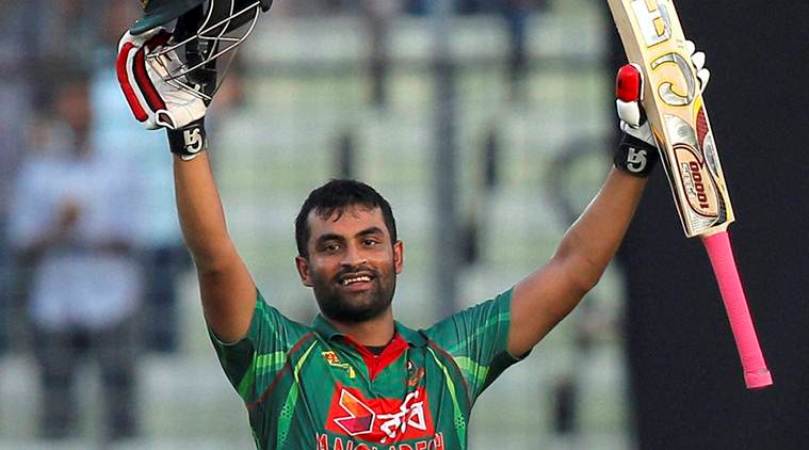The Roar of the Tigers
An ode to the Bangladesh cricket team

This, in a nutshell, gives you a sense of the truly diverse, grassroots background of many of Bangladesh’s celebrated cricketers. There are many things to be proud of about Bangladesh’s cricket, but for me, this is the most important.
Bangladesh cricket is a wondrous exception in a country where all benefits disproportionately go to the elite in Dhaka, mostly to the uber-wealthy (a Swiss diplomat in Dhaka once quipped about the “people’s republic of Gulshan”). This is not, alas, something peculiar to Bangladesh. In the United States, where I live, things are possibly worse. Once education was considered here to be a pathway to social mobility. Today, you can predict SAT scores, a critical tool for getting in top universities, by ZIP codes of residents. Welcome to the land of economic apartheid.
I am impervious to it all. The joy of seeing the Tigers battling it out (it’s only an occasional glance during work time this time around) takes precedence over everything else.
Anyway, back to Bangladesh cricket. I’m old enough to remember when cricket used to be a gentleman’s game in Bangladesh, and not in a good way. Scions of the affluent indulged in it, because who else could afford the exorbitant price of gear? Performance was pallid. Way back in the Pakistan era, erstwhile East Pakistani presence was virtually nonexistent.
Yet how it has all changed in front of our very eyes! Take our biggest cricket star over which the international media now swoons. He is not from some tony enclave in Dhaka, but from Magura. Shakib Al Hasan, who is having the run of his life, is from a far-flung part of Bangladesh, as is Mustafizur Rahman, whose bashful smile belies the wile and pace of his bowling.
Unique among the nation’s elite institutions, Bangladesh cricket represents the rich, full diversity of this nation of villages, small towns and the megalopolis.
For an expatriate living in the US for three decades, it’s not always easy to follow the Tigers. Remember when they beat Ricky Ponting’s Australia in Cardiff in 2005? In those days, cricket broadcasts in the US were unheard of, and I followed their progress on the Internet on Cricinfo, almost dying with tension as the webpage took forever to load. In 2015, I watched Bangladesh’s marvellous defeat of England in Adelaide at the last World Cup with a bunch of Bangladeshi friends. We stayed up all night—and did not regret a moment of it.
This time around, World Cup matches start at 5:30am US time. At work, I have my laptop switched on with streaming broadcast in the back office, and my smartphone loaded with live scores. Co-workers smile indulgently, bemused at this crazy South Asian’s obsession with a sport that goes on for hours and hours.
I am impervious to it all. The joy of seeing the Tigers battling it out (it’s only an occasional glance during work time this time around) takes precedence over everything else.
So first and foremost, salute to you, dear Tigers, for making all of this happen. I know we fans can be fickle and vicious. A win can make you a hero one day, and then a bad loss can have people baying for your blood. Handling the pressure and performing consistently is no mean feat—and we thank you all the more for it.
Except for the odd mini-scandal, you have been exemplary in your conduct. Down-to-earth and gracious to a fault, you have been wonderful ambassadors of our country.
Next, salute to the government for providing the infrastructure that has made this possible. We are all too aware of the many failings of our government: the graft, politicisation and mismanagement. Yet this is one area where the government has truly shone. One government venture deserves to be especially commended—the Bangladesh Krira Shikkha Protisthan. Many of our top cricketers are the products of this remarkable institution.
The result is a cricket team that looks like Bangladesh, representing its rural hinterland, its regional small towns. Bangladesh has been able to tap a wealth of talent—when you cast a net wide enough to encompass the entire nation, the odds for catching some real talent in some village or small town go up exponentially.
The upshot of all of this has been that Bangladesh is now a global force in cricket. This was brought home to me while reading the comments section of the BBC Sport website following Bangladesh’s defeat of South Africa. Howls of protest from cricket fans from all over the world took the BBC to task for referring to the Tigers win as an upset.
Tigers fans are a class unto themselves. While I’m rather fond of them, I also urge them to get real. Fans sometimes go overboard in their expectations. For all their achievements, there is no gainsaying the fact that the Tigers still have a deficit of skills. The remarkable thing about them is, they still manage to achieve success by leveraging whatever skills they have.
It’s too early to tell whether the Tigers will actually go into the semifinals. To me, it does not matter. My admiration and love for them is unconditional. They have won some games and lost others, but they have consistently given a good account of themselves, in and out of the field. Even when they have lost, they have fought like, well, tigers.
To me, that’s all that matters.









